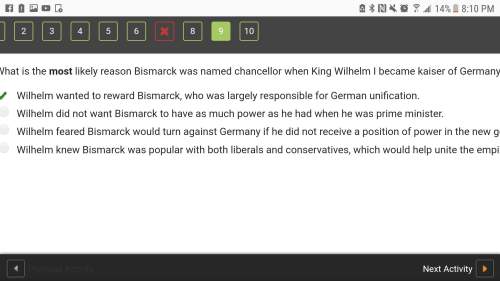
Mathematics, 30.11.2021 23:20, brekline12
Which statement best explains conditional probability and independence?
When two separate events, A and B, are independent, the probability of either event occurring is the same. Therefore, P(A)=P(B) and P(A|B)=P(A).
When two separate events, A and B, are independent, P(A|B)=P(A). This means that the probability that event B occurred first has no effect on the probability of event A occurring next.
When two separate events, A and B, are independent, the probability of either event occurring is the same. Therefore, P(A)=P(B) and P(A|B)=P(B).
When two separate events, A and B, are independent, P(A|B)=P(B). This means that the probability that event A occurred first has no effect on the probability of event B occurring next.

Answers: 1
Other questions on the subject: Mathematics

Mathematics, 21.06.2019 17:00, ladnerhailey16
What is sin 7x/4 ? i need on this urgent trig
Answers: 1

Mathematics, 21.06.2019 18:00, julliette27
What power can you write to represent the volume of the cube shown? write the power as an expression with a base and an exponent and then find the volume of the cube
Answers: 3

Mathematics, 21.06.2019 18:30, corrineikerd
41/17 as a decimal rounded to the nearest hundredth
Answers: 1

Mathematics, 21.06.2019 22:10, 666isabella666
Gravel is being dumped from a conveyor belt at a rate of 25 ft3/min, and its coarseness is such that it forms a pile in the shape of a cone whose base diameter and height are always equal. how fast is the height of the pile increasing when the pile is 14 ft high? (round your answer to two decimal places.) ft/min
Answers: 3
Do you know the correct answer?
Which statement best explains conditional probability and independence?
When two separate events,...
Questions in other subjects:

Health, 23.10.2019 18:00















